
-
 England women's rugby coach Mitchell says World Cup favourites' tag 'irrelevant'
England women's rugby coach Mitchell says World Cup favourites' tag 'irrelevant'
-
US ramps up attack on international court over Israel

-
 Palace transfer targets Eze and Guehi to start in European tie
Palace transfer targets Eze and Guehi to start in European tie
-
North Carolina coasts prepare for flooding as Erin churns offshore

-
 India test-fires ballistic missile ahead of US tariff hike
India test-fires ballistic missile ahead of US tariff hike
-
Antarctic climate shifts threaten 'catastrophic' impacts globally

-
 Tall ships sail into Amsterdam for giant maritime festival
Tall ships sail into Amsterdam for giant maritime festival
-
Trump raises pressure on central bank, calls for Fed governor to resign

-
 Woods to head PGA Tour committee to overhaul golf
Woods to head PGA Tour committee to overhaul golf
-
Google packs new Pixel phones with AI

-
 How Europe tried to speak Trump
How Europe tried to speak Trump
-
Stock markets diverge awaiting Fed signals as tech sell-off deepens

-
 Ombudsman gives Gosden another International, Derby hero Lambourn loses
Ombudsman gives Gosden another International, Derby hero Lambourn loses
-
Eurovision returns to Vienna, 11 years after Conchita Wurst triumph

-
 England expects at Women's Rugby World Cup as hosts name strong side for opener
England expects at Women's Rugby World Cup as hosts name strong side for opener
-
Marseille's Rabiot, Rowe up for sale after 'extremely violent' bust-up: club president

-
 Shearer accuses Isak of pouring 'flames on fire' of Newcastle row
Shearer accuses Isak of pouring 'flames on fire' of Newcastle row
-
French champagne harvest begins with 'promising' outlook

-
 England unchanged for Women's Rugby World Cup opener against the USA
England unchanged for Women's Rugby World Cup opener against the USA
-
Stock markets diverge as traders eye US rate signals
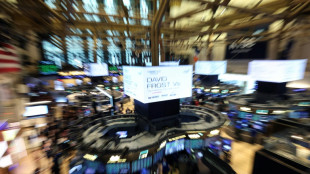
-
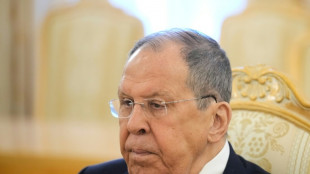 Russia says must be part of Ukraine security guarantees talks
Russia says must be part of Ukraine security guarantees talks
-
Historic Swedish church arrives at new home after two-day journey
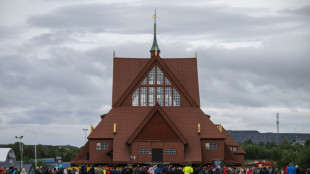
-
 Winds complicate wildfire battle in Spain
Winds complicate wildfire battle in Spain
-
Nestle unveils method to boost cocoa yields as climate change hits

-
 UK set for more legal challenges over migrant hotels
UK set for more legal challenges over migrant hotels
-
Russia says discussing Ukraine security guarantees without Moscow 'road to nowhere'
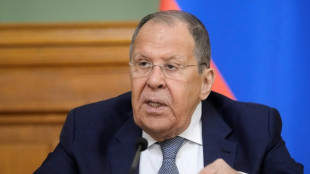
-
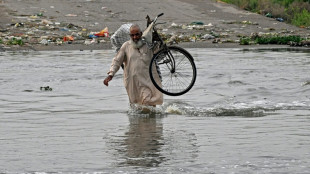 Torrential Pakistan monsoon rains kill more than 20
Torrential Pakistan monsoon rains kill more than 20
-
Record number of mosquito-borne disease outbreaks in Europe: health agency
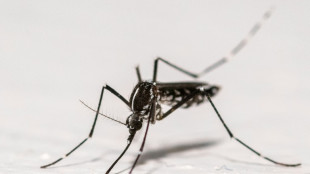
-
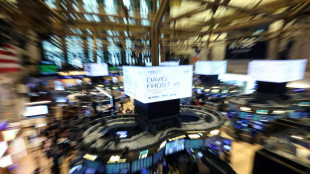 Stock markets diverge after Wall Street tech sell-off
Stock markets diverge after Wall Street tech sell-off
-
Chinese troops swelter through rehearsal for major military parade
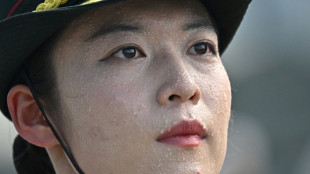
-
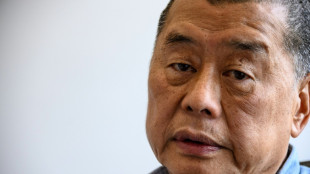 Defence begins closing arguments in Hong Kong trial of Jimmy Lai
Defence begins closing arguments in Hong Kong trial of Jimmy Lai
-
World champions Springboks to play Japan at Wembley

-
 Kneecap rapper in court on terrorism charge over Hezbollah flag
Kneecap rapper in court on terrorism charge over Hezbollah flag
-
Israel approves plan to conquer Gaza City, calls up reservists
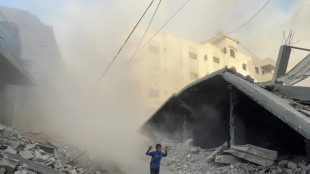
-
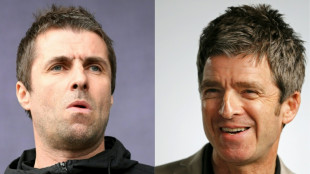 Oasis star Noel Gallagher piles praise on 'amazing' brother Liam
Oasis star Noel Gallagher piles praise on 'amazing' brother Liam
-
German minister says China's 'assertiveness' threatens European interests
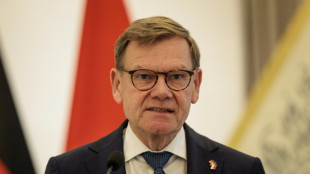
-
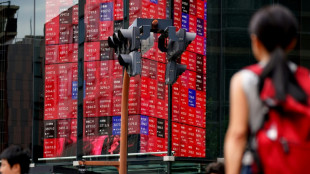 Markets waver as Japan exports show tariff strain
Markets waver as Japan exports show tariff strain
-
Afghanistan bus crash death toll rises to 78
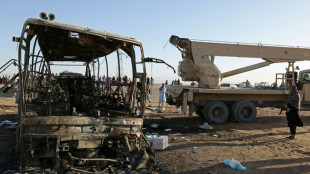
-
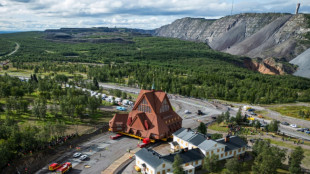 Historic Swedish church inches closer to new home
Historic Swedish church inches closer to new home
-
Asian markets waver as Japan exports show tariff strain
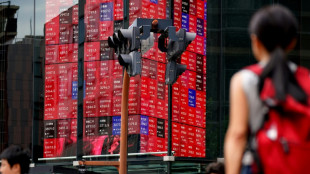
-
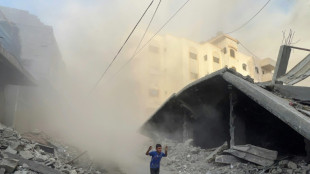 Israel defence minister approves plan to conquer Gaza City
Israel defence minister approves plan to conquer Gaza City
-
More than 20 dead in fresh Pakistan monsoon rains
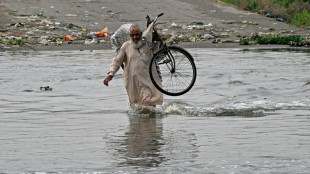
-
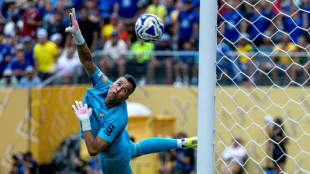 Brazilian goalkeeper Fabio claims world record for most games
Brazilian goalkeeper Fabio claims world record for most games
-
Vienna chosen to host Eurovision 2026

-
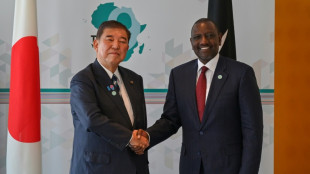 Japan hosts African leaders for development conference
Japan hosts African leaders for development conference
-
Reclusive Turkmenistan bids to go tobacco-free in 2025

-
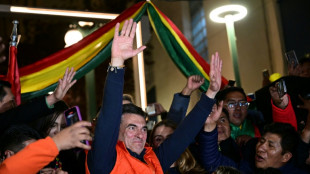 From TikTok to frontrunner, inside Paz's presidential campaign in Bolivia
From TikTok to frontrunner, inside Paz's presidential campaign in Bolivia
-
Chinese mega-hit 'Ne Zha II' enlists Michelle Yeoh to woo US audiences

-
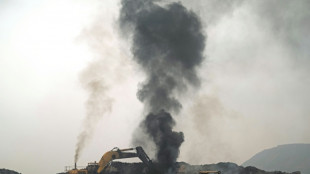 India celebrates clean energy milestone but coal still king
India celebrates clean energy milestone but coal still king
-
US demand for RVs fuels deforestation on Indonesia's Borneo: NGOs


Satellite launcher set for blastoff in boost for Europe space ambitions
Europe's new heavy-lift rocket, Ariane 6, is to carry out Monday its first commercial mission as European nations seek to secure independent access to space amid a shock rapprochement between Moscow and Washington.
The high-profile mission comes as French President Emmanuel Macron calls for Europe to reduce its security reliance on the United States and the European space industry struggles to remain competitive in the face of Elon Musk's Space X.
Following several postponements, the Ariane 6 rocket is scheduled to blast off from a spaceport in Kourou in French Guiana at 13:24 (16:24 GMT) Monday.
The launcher will carry a French military satellite, which will be placed in orbit at an altitude of around 800 kilometres (500 miles).
The CSO-3 satellite is expected to strengthen France's military autonomy and improve its army's intelligence capabilities.
Europe has not been able to use Russia's Soyuz rocket for satellite launches after Vladimir Putin invaded Ukraine in 2022, while Ariane 5 was retired in 2023.
"The whole world is watching us," David Cavailloles, chief executive of French aerospace company Arianespace, told AFP in February.
- 'Sovereign manner' -
Initially planned for December, the mission was put back until February 26 and then March 3 because of problems getting the satellite to the Kourou launchpad, according to Arianespace.
It will be the second launch for Ariane 6, after its inaugural flight last July.
CSO-3 will complete a network of three French military imaging satellites, with the first two launched in 2018 and 2020 by Soyuz.
"It's always better to have your own launcher and to fire it from home," General Philippe Steininger, a consultant for the French Space Agency (CNES), told AFP.
Given the military role of the satellite being put into space, strict security precautions were being taken to limit access at the spaceport on the northern coast of South America while three Rafale fighter jets were set to patrol the surrounding skies.
"The satellite has to be protected," said Carine Leveau, CNES director of space transport. "It has special instruments that must not be seen by just anybody."
The satellites will enable the French army to receive extremely high-resolution images.
"It is very important for the armed forces to conduct their operations and for our political authorities to make decisions in a completely sovereign manner, with first-hand information that does not depend on anyone else," said Steininger, the author of "Space Revolutions."
"This satellite makes it possible to produce very accurate military maps thanks to 3D imaging," he added.
- 'Autonomous access to space' -
Europe's other launcher, Vega-C, did not resume flights until December 2024 after being grounded for two years following an accident that resulted in the loss of two satellites.
The mishap left Europe without spacecraft to launch satellites into orbit for a year, following delays to the Ariane 6 rocket and lack of cooperation with Russia.
"It was very important for France and for Europe to regain this autonomous access to space because we cannot have a space policy today without having the means to send our satellites into space independently," Lionel Suchet, CNES acting head, told AFP.
"What counts in these cases is to be sure that everything is secure. Like all launches, it is a risky launch," he added.
Some of the images taken by the CSO-3 satellite will be shared with Germany, Belgium and Sweden.
R.AbuNasser--SF-PST
